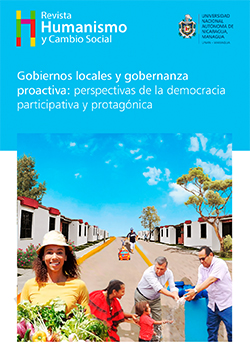Disinfodemy, a new social wordwide disease (Reflections on the COVID-19 health crisis)
DOI:
https://doi.org/10.5377/hcs.v20i20.15842Keywords:
Disinfodemy, pandemic, COVID-19, digital media, communicationAbstract
This essay addresses in an analytical and argumentative way false or distorted information, in the context of the health crisis caused by COVID-19 since 2020, the year in which this pandemic appeared, knowing that timely and reliable guidance is a matter of life and death. The disinfodemy, as this communicational phenomenon has been called, has been fostered by the digital media. This paper provides a perspective on the scope of the terms used in this communicational problem, explaining and discussing the various theories of the origin of the virus which started in social networks. It also analyzes the contents published in the digital media regarding the myths about the prevention and treatment of the disease and identifies the different consequences of digital disinfodemy on the Nicaraguan population.
Downloads
180
References
Gobierno de Reconciliación y Unidad Nacional [GRUN]. (2021, 19 de julio). Plan Nacional de Lucha Contra la Pobreza y para el Desarrollo Humano 2022-2026. https://www.pndh.gob.ni/documentos/pnlc-dh/PNCL-DH_2022-2026(19Jul21).pdf
Holmes et al (2021). The Origins of SARS-CoV-2: A Critical Review. Zenodo. https://doi.org/10.5281/zenodo.5075888
Larraín, J. (2021, 20 de octubre). ¿Cuál es el origen del Covid-19? Pontificia Universidad Católica de Chile. https://biologia.uc.cl/covid-19-cual-es-su-origen-habla-elprofesor-juan-larrain/
Organización Mundial de la Salud [OMS]. (2020, 10 de noviembre). Información básica sobre la COVID-19. https://www.who.int/es/news-room/questionsand-answers/item/coronavirus-disease covid-19
Organización Panamericana de la Salud [OPS]/Organización Mundial de la Salud [OMS]. (2020a, 11 de marzo). La OMS caracteriza a COVID-19 como una pandemia.https:// www.paho.org/es/noticias/11-3 2020-oms-caracteriza-covid-19-comopandemia
Organización Panamericana de la Salud [OPS]/Organización Mundial de la Salud [OMS]. (2020b, 31 de marzo). Mitos más difundidos sobre COVID-19. https://www.paho.org/es/noticias/31-3-2020-mitos mas-difundidos-sobre-covid-19
Real Academia Española [@RAEinforma]. (2022, 17 de mayo). ¿Qué es desinfodemia? [Tweet]. Twitter. https://twitter.com/RAEinforma/status/1526451378687713280?t=oVFbLE5qL7AlkGdcfHLZww&s=19.
Sánchez, K. (2021, 13 de octubre). ¿Qué es la desinfodemia y cómo evitarla? La Voz de América.https://www.vozdeamerica.com/a/que-es-desinfodemia-comoevitar-caer-en ella-/6269212.html
Downloads
Published
How to Cite
Issue
Section
License
Copyright (c) 2023 Universidad Nacional Autónoma de Nicaragua, UNAN-Managua

This work is licensed under a Creative Commons Attribution-NonCommercial-ShareAlike 4.0 International License.




